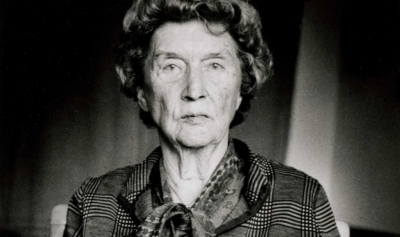Commentary
I saw an elderly, quite famous poet sitting all forlorn on a large boulder, neither quite inside a lecture room nor quite outside on the leafy lawn.
Her location, and the droop of her shoulders said, See, I am alone. I knew her, I had taken her once on a short publicity round in Sydney, years ago: should I stop and say, Remember me? Remember that book you wrote, how we thought it might change things, and perhaps it has.
... (read more)A grizzled, greying migrant, who was holidaying in Sicily after twenty years in Australia, attended a civic reception for participants in a seminar on Australian literature held in Piazza Armerina last January. His wife and three children were in Moonee Ponds. He was obviously pleased to speak with the Australians present as if they somehow confirmed his experience in a far-off land.
... (read more)Promoting a book north of Brisbane can be a wary business, especially if the author’s car carries a Canberra number plate.
In this most nationalistic of states, he must first establish his credentials as a Queenslander. In my own case, born at Boonah near Ipswich and with many years’ experience in the north, these were impeccable.
... (read more)A few Australian poems from J.J. Stable’s Anthology, A Bond of Poetry (‘The Man from Snowy River’, ‘Clancy of the Overflow’, ‘My Country’), Robbery Under Arms and For the Term of His Natural Life are, to my shame, practically all the Australian literature I can remember reading in my school days. My interest in Australian writers was stirred, really, by two events while an undergraduate at Sydney University. The first was two lectures given by H.M. Green, Fisher Librarian, on Christopher Brennan (an interest reinforced by the first performance at the State Conservatorium of Music in November 1940 of Five Songs – poems of Brennan set to music by Horace Keats). The second was a passing reference by Ian Maxwell in a splendid set of lectures in 1939 on three modem satirists (Butler, Shaw, Huxley) to Christina Stead’s House of All Nations. Maxwell was certainly up to date in his reading, as Christina Stead’s fiction was not at that time widely known in Australia and House of All Nations had been published only the year before. These two events made me realize that Australian writers were part of that great world of English literature which were studied at universities.
... (read more)The problems of children’s book publishing are not really different in kind from those which beset other types of publishing; they are the familiar problems exacerbated by the fact that these books are designed for a group of second-class citizens who, being young and dependent, have little influence on what is produced for them, and little financial clout.
... (read more)Children’s Book Week is traditionally a time to take an overall view of the last year’s output of children’s books. Such an overall view is necessarily superficial but it can be interesting to note the appearance of new authors and illustrators, new themes, or different treatment of old themes. This article will look at the picture books and fiction of the last twelve months.
... (read more)It may seem callous at a time when so much human life is being wasted to spare any concern for the destruction and dissipation of the archaeological collection in the National Museum at Kabul. Yet the loss in both cases is irreplaceable, and it may even be that the loss of the artefacts is, in the long run, qualitatively more important than the loss of individual human lives.
... (read more)

